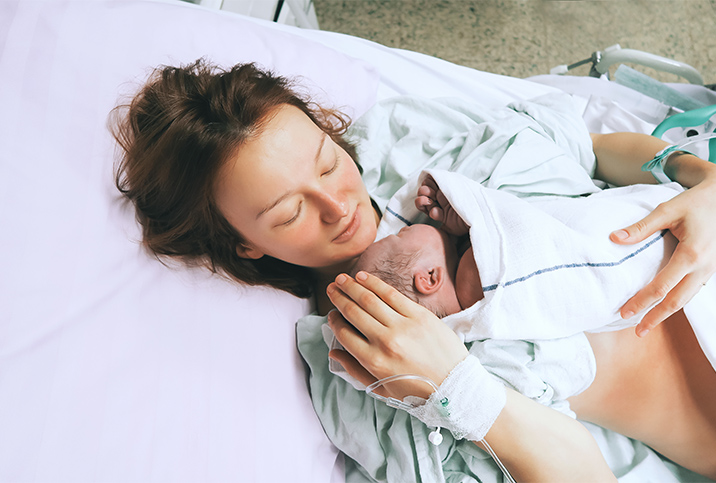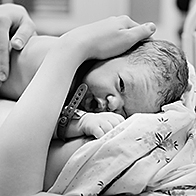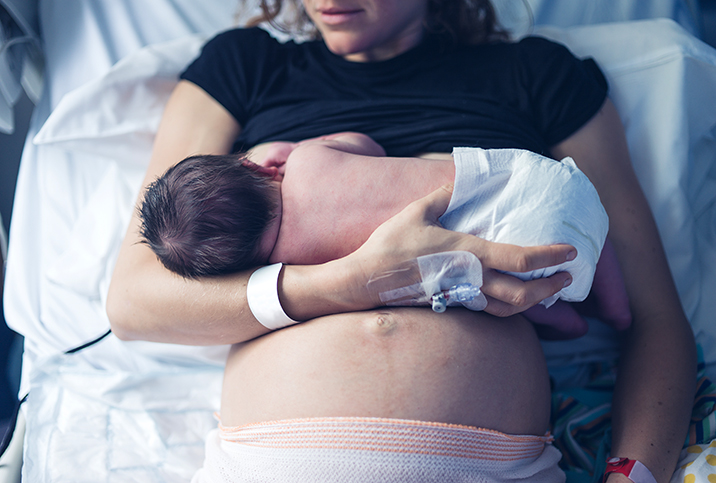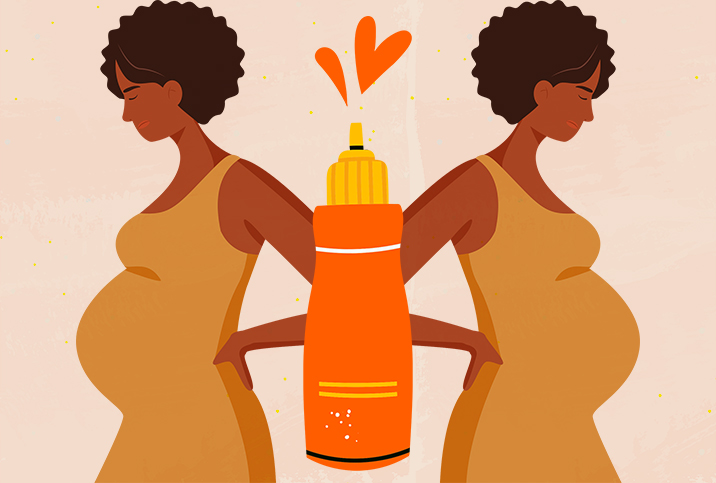How to Mentally Prepare for Labor

Regardless of your pain tolerance, it's completely logical to be nervous about the pain of labor and delivery. There's no question that it's a painful experience, and it's important to know how to mentally prepare for labor.
According to a Stanford University study, 71 percent of the participants opted for epidurals or other spinal anesthesia to ease the pain of childbirth. And since every human experiences pain differently, there's no way to know exactly how your body will react, especially if it's your first time giving birth.
"There are so many different factors that could contribute to pain felt during all stages of delivery," said Samantha Kropp, a certified doula, newborn care specialist and postpartum placenta specialist in Northern Wisconsin. "Pain tolerance is such a wide spectrum and honestly has so many factors involved since every single body is different."
Though medical pain management options such as epidurals are available, it's important to prepare for the magnitude of what you're about to experience, especially if you'd like to give birth without medicinal intervention. Preparation involves getting in touch with your emotional state, doing your research and cultivating a support system.
Factors that influence labor pain
One major indicator of pain during labor is the position of your baby in the womb. While position doesn't always equal pain, it very often does. If your baby is facing your abdomen, you may feel immense pressure in your tailbone, which can cause discomfort.
Kropp said a person's stress level is another factor that can greatly influence the amount of pain they experience during labor and delivery.
"When in labor, fear and stress cause a reaction of 'fight or flight' and this causes pain levels to increase," Kropp said. "They cause distraction, taking the focus away from rhythm and breathing. Also, fear can slow labor progress due to the tension held in the body."
Holly Yeager, a doula and the owner of Lancaster Doulas in Pennsylvania, agreed that stress causes strain on the body during labor. Additionally, numerous factors aside from simply fearing pain can cause stress in expectant mothers.
"Stress and anxiety are the biggest influencers of pain," Yeager said. "Food and housing insecurity, domestic violence and health scares, as well as fear of childbirth, your providers or the hospital, can all heighten the stress an expecting parent experiences."
Another factor that can result in a more painful experience is lack of education on what to expect in the delivery room. The best way to combat anxiousness during childbirth is to be informed. When you know what to expect, you may experience less fear and uncertainty, and thus, more comfort in your birth experience.
"Childbirth education plays a larger role than most believe," Kropp said. "Having some preparation in what type of pain is expected, where pain and pressure will be felt, and different positions that can be used to cope and comfort are all things that may influence the labor experience."
Bekka Craig, a mother of one with doula training in Central Illinois, agreed on the importance of preliminary education.
"As a doula and Virgo, researching all aspects of childbirth was so important to me," Craig said. "Of course, as a woman who had never given birth myself before, I had little in the ways of truly preparing my body for that experience, but preparing my mind I knew I could do, and so I did. Speaking to other professionals, reading books and articles as well as seeking insight and experience from trusted friends and relatives was very helpful to me."
How you can prepare
We've established the importance of being as knowledgeable as possible about what to expect during labor. Kropp achieved this by doing her reading.
"As a person expecting a child and preparing for labor, I spent a lot of time with my head in books," Kropp said. "I wanted to know everything: how the physiological process looked and what muscle involvement there was so that physically I could prepare for pain."
Additionally, it's very beneficial to attend a childbirth class, especially if your hospital or birthing center offers one.
"If you are pregnant with your first child, I cannot recommend too highly the benefit of attending a childbirth class," Craig said. "Many hospitals offer them, and I recommend them if you are able to attend one wherever you plan to give birth. This also gives you a chance to speak to the hospital staff that may even attend your birth, and they can give you the ins and outs of what their particular location offers."
'If you are pregnant with your first child, I cannot recommend too highly the benefit of attending a childbirth class.'
Craig also recommended an exercise for getting into the proper mindset to move through difficult contractions.
"Practicing visualization during contractions, for me, was so beneficial," Craig said. "Each time a contraction began, I visualized myself walking out the door and down a hall. When the contraction would end, I saw myself entering another door. It sounds silly, but it helped me focus and know that the contractions wouldn't last forever."
As with most difficult events in life, childbirth is a smoother process if you have a good support system. Be it your partner, a trusted relative, a friend or a medical professional, it's healthy to have someone in your corner reminding you to breathe through the more difficult parts of labor and delivery. You can have all the knowledge in the world under your belt, but it's still important to have someone who can remind you that you have strength and choices.
"The truth about pain relief in labor: a calm comfortable environment, a support person who can aid in physical support and reminders to move positions, and knowing what medical pain relief options are available, such as an epidural and laughing gas, [are key]," Kropp said. "There is power in knowledge, and knowing you have options can give you a peace of mind."




















